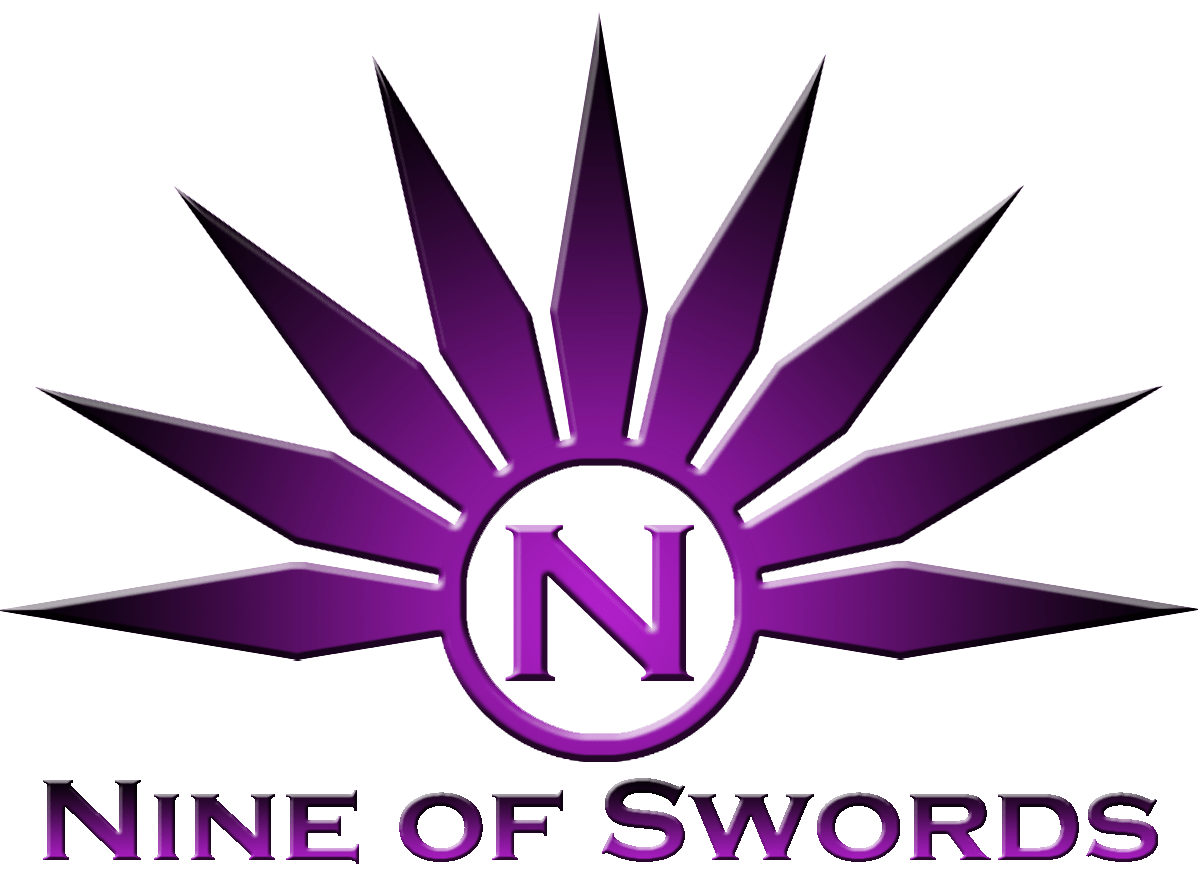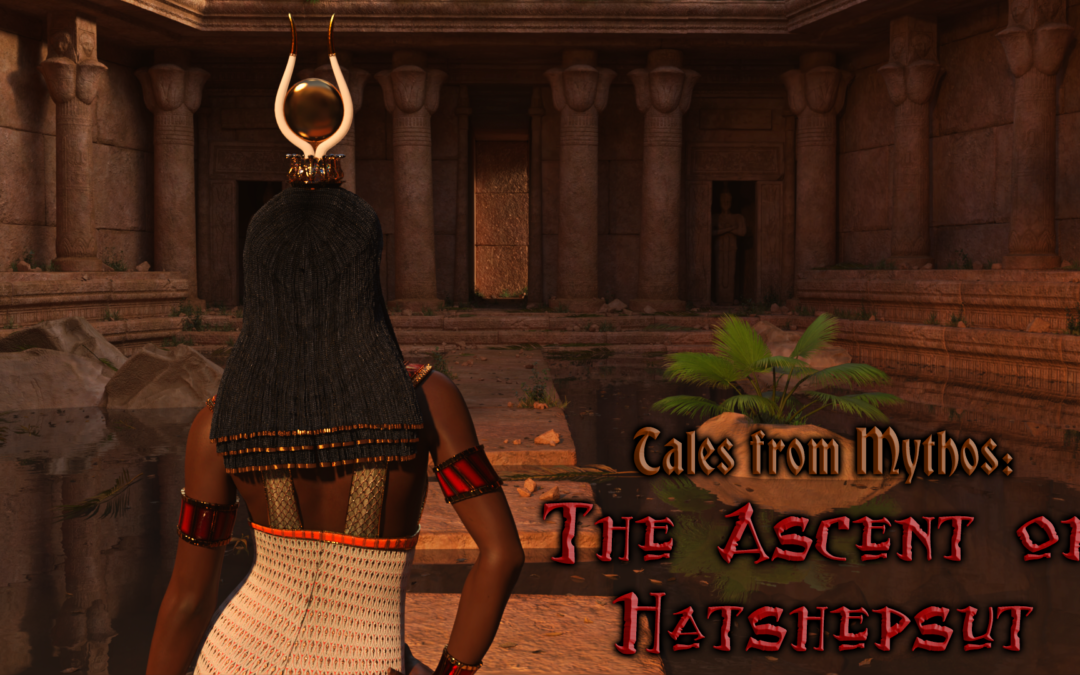Forward from Nine:
Here it is, at long last! My work has been stupid stressful and busy, and people pissed me off so much today that I decided to totally tune out my job to write this story. I had to. For my sanity.
I did a good bit of research on this, but some of it is guesswork and may not be 100% historically accurate. So before I get a bunch of “well, ackshually” replies, I will start with this disclaimer: The below events are how things occurred in the world of Mythos, not the real world that we (at least most of us) live in.
Now, then… without further ado…
“The Ascent of Hatshepsut”
January 22nd, 1458 BCE
Deir al-Bahari
Theban Necropolis, Egypt
Maatkare Hatshepsut stood inside of the burial chamber, watching as a mummified body was being laid for eternal rest. The body was lowered into a container carved from red granite, etched with hieroglyphs depicting the life and deeds of Egypt’s most recent Pharaoh.
Those deeds, and the body itself, both belonged to Hatshepsut, herself.
The deceased ruler felt a whirlwind of emotions all at once as she watched her own interment. She could hardly grasp what was happening – she was dead, surely. She’d watched in gruesome fascination as her own organs were removed and stuffed into canopic jars as part of her own mummification. She’d heard the ceremonies performed in her honor. She’d seen Thutmose watching impassively, which caused her to wonder if he mourned her death, or secretly delighted in knowing he was now the sole Pharaoh.
“It’s a little weird, isn’t it?” came a purring feminine voice.
The acolytes tending to her body didn’t seem to hear, but Hatshepsut whirled around to seek the source of the words. None stood nearby, save for a black cat sitting at her feet. She hadn’t noticed the cat enter, but that was hardly surprising – cats came and went wherever they pleased without notice.
Much to her surprise, the cat looked upward at her, speaking again. “It will likely take some adjustment to you new role. You’re still incorporeal to mortals, right now.”
“A… an emissary of the gods?” Hatshepsut theorized aloud, stooping down to get more to the cat’s eye level.
“Not exactly,” the cat replied, sitting straight in a manner only befitting of royalty. And cats. “I am Bastet.”
Despite having no physical body, Hatshepsut wanted to widen her eyes at the revelation. “You are a god!”
Bastet seemed quite pleased with herself as her form shifted, growing and changing into a bipedal, humanoid form. For a moment she appeared as a woman with the head of a cat, but in short order she assumed a fully-human guise.
“I am, yes. And you are as well.”
Her people had always viewed Pharaohs as divine, to some degree. While Hatshepsut enjoyed the power that such a belief inspired, she hardly held such a belief herself. She’d never spoken to any gods, that she knew of. Until now.
“I am a god?” Hatshepsut questioned, looking back to her body as the stone slab was placed over her remains, “that seems unlikely. I thought that I would be taken to Du’at by now.”
“Oh, you will. We like to let deified humans roam around formless for a while so they have time to come to terms with that whole… being dead thing.”
“I don’t think I’ve come to terms with it, just yet,” Hatshepsut sighed – or performed a disembodied approximation of a sigh. “But you say I am to be a god? How is this possible?”
“Through belief,” Bastet replied simply, shrugging as she looked back toward Hatshepsut’s coffin. “Those etchings there revere your deeds. All your life you were treated as divine. When there is that much belief that a mortal is a divinity, they are ascended. Deified.”
Hatshepsut paused, processing the new information. “So… I become a god because the people believe me to be?”
Bastet snapped her fingers and pointed back at Hatshepsut. “Yup. Congratulations. It’s a lot more boring than it sounds, though.”
“You seem rather blase about this entire thing,” Hatshepsut shot back, surprised at her own candor when speaking to a deity.
Turning back to face Hatshepsut, Bastet shrugged. “Yeah, I know. Usually Wadjet or Seshat would be giving this whole speech, but they’ve got other stuff to deal with, at the moment.”
“I… see… so what am I to do, now?”
Bastet gestured vaguely around herself. “Right now, you just kinda hang out. You’ll meet other gods, see how the universe works… really, when a mortal gets deified, it gets weird. We that were born as gods have a celestial duty assigned to us. For the most part, we observe and guide the mortal world. Sometimes through direct intervention, sometimes through manipulation of natural forces, sometimes we’re just disguised as regular people. We have our parts to play.
“However, when a mortal becomes a god, they don’t have anything to do. Eventually you fall into your own niche.”
After a moment, Hatshepsut replied. “Ah.”
Giggling, Bastet stretched her arms up over her head, letting out a very catlike yawn. “I’d ask if the cat had your tongue, but under the circumstances that’d be kinda weird.”
“This whole situation is ‘kinda weird’,” Hatshepsut groaned, mocking Bastet’s nonchalant nature. “So am I to just live on forever hoping that I may have something to do eventually?”
“Hey, I told you it was boring!” Bastet grinned. “But that’s the gist of it, yeah. So long as you have those that believe in you, you’ll live on for eternity.”
Hatshepsut looked around the tomb. It was covered with engravings about her life, and decorated with statues in her honour. A massive obelisk was already erected outside with a recounting of her deeds.
“Well, I don’t think I’ll have to worry about people losing faith in me.”
It was unfortunate that such an event did happen. Records of Hatshepsut’s life were destroyed, her statues hidden, and her body relocated to the tomb of her nurse (and two geese, strangely enough). Within a century, Hasthepsut felt her power wane until, eventually, she embraced oblivion.
July 17th, 1903
Tomb KV60
Luxor, Egypt
“Bloody hell, what a mess!”
Howard Carter held a torch aloft as he observed the recently-unearthed tomb. It was a far cry from the tomb of a noble that he had hoped to discover. Quite the opposite, in fact – it looked as if this chamber had been ransacked hundreds, if not thousands of years prior.
“Waste of time is what this was,” Carter grunted, shaking his head as he gingerly stepped through the wreckage.
“This is the Valley of the Kings,” chimed in the helpful voice of his guide – a local girl he’d hired to aid in his expeditions.
Howard rolled his eyes, turning to look upon the guide while gesturing with his free hand. “Does this look like the resting place of a bloody king, to you?!”
The guide tapped her chin in thought, letting her green eyes scan the room. “Perhaps not. But perhaps it could be in your best interests to decipher these pictograms? They could lead you upon an even greater discovery.”
“Oh, are you the archaeologist, now? Shall I defer to your expert advice, miss… miss… whatever your name was?”
She smiled in response, spreading her hands to her sides. “I should say not, Howard Carter. I am only here to aid you in your pursuit of knowledge.”
“You’re here to make sure I don’t get lost or die to some hidden asp’s nest. Leave the thinking to us.”
Howard stomped past the guide, meeting one of his expedition assistants that was entering at that moment. “Start taking notes. I want to decipher these pictograms. They could lead us to an even greater discovery.”
The assistant nodded, scrambling back outside to get some supplies. Howard spared one last glance to the guide before he followed as well.
Alone in the chamber, the guide carefully walked toward one of the two coffins therein. These archaeologists called them “sarcophagi”, but she knew the people sealed within would be horrified by the true meaning of such a word.
The guide squatted down beside the red granite box, brushing her fingers along the surface to clear away some of the dust covering the etching.
“Fear not, Hatshepsut,” the guide whispered, a smile spreading over her lips as her eyes glinted with excitement, “you will be remembered once again.”



These archaeologists called them “sarcophagi”, but she knew the people sealed within would be horrified by the true meaning of such a word.
No kidding! It never occurred to me to look up the etymology of the word ‘sarcophagus’ before, but having now done so, yeah, pretty sure “flesh-eating stone” is really not in keeping with the Egyptian view of the preservation of corporeal remains to aid in the transition to the afterlife.